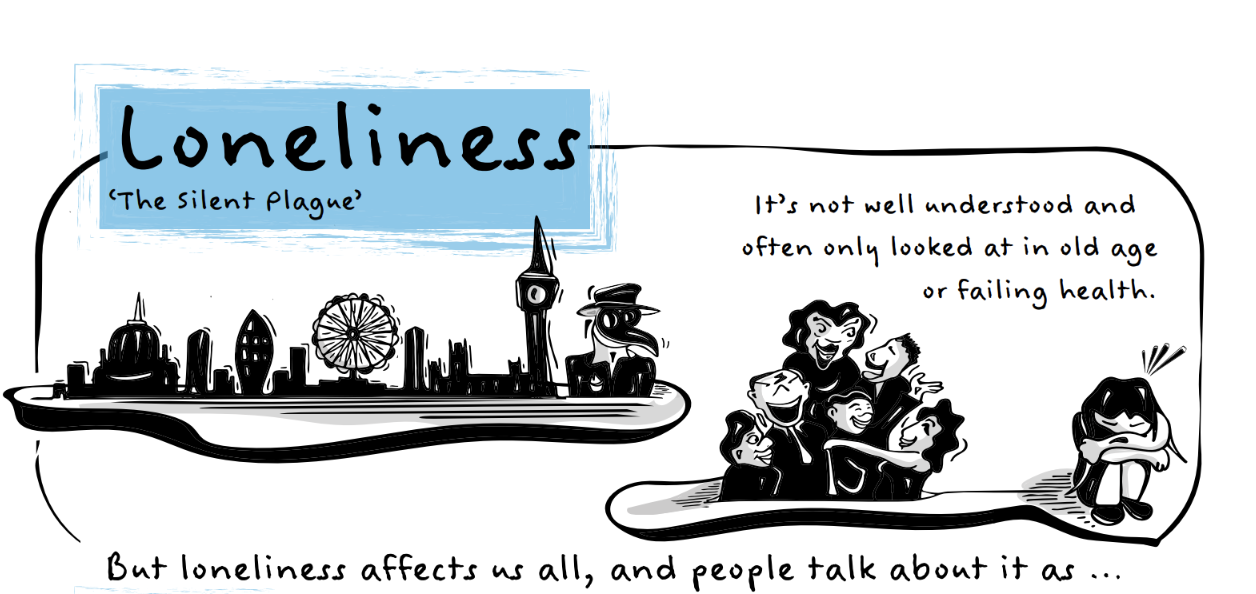
AEBCD Loneliness

Local authorities need to find new ways of collecting and using data on social care users’ experiences to improve service design and quality. We drew on and adapted an approach used in the healthcare improvement field, accelerated experience-based co-design, to see if it can be translated to social care. We use loneliness support as our exemplar.
We wanted to understand how loneliness is understood and experienced by members of the public and characterised by social care and voluntary sector staff; to identify service improvements around loneliness support; to explore whether accelerated experience-based co-design is effective in social care; and to produce new resources for publication on Socialcaretalk.org.
We found using loneliness support as the focus allowed us to comprehensively explore the use of accelerated experience-based co-design, and we found it can be adapted for use in social care. We produced recommendations for the future use of the approach in social care which include identifying people or organisations who could have responsibility for implementing improvements, and allowing time for coalition-building, developing trusted relationships and understanding different perspectives.
Outputs
How to do accelerated experience-based co-design guide.
Talking to people about loneliness. A section on Socialcaretalk.org.
Academic papers
Ryan, S., Maddison, J.R., Wilberforce, M.R., Birks, Y.F., Baxter, K., Morrissey, E., Martin, A., Lambat, A., Bebbington, P., Ziebland, S. and Robson, L., 2024. Understanding and using experiences of social care to guide service improvements: translating a co-design approach from health to social care. Health and Social Care Delivery Research.
Malli, M.A., Ryan, S., Maddison, J. and Kharicha, K., 2023. Experiences and meaning of loneliness beyond age and group identity. Sociology of Health & Illness, 45(1), pp.70-89.
